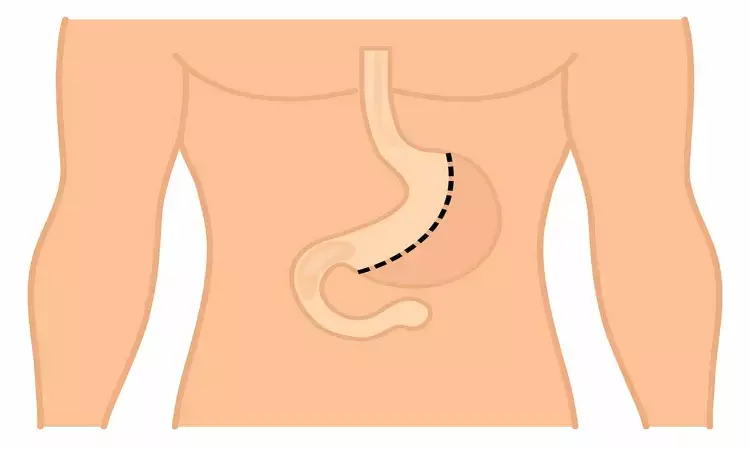- Home
- Medical news & Guidelines
- Anesthesiology
- Cardiology and CTVS
- Critical Care
- Dentistry
- Dermatology
- Diabetes and Endocrinology
- ENT
- Gastroenterology
- Medicine
- Nephrology
- Neurology
- Obstretics-Gynaecology
- Oncology
- Ophthalmology
- Orthopaedics
- Pediatrics-Neonatology
- Psychiatry
- Pulmonology
- Radiology
- Surgery
- Urology
- Laboratory Medicine
- Diet
- Nursing
- Paramedical
- Physiotherapy
- Health news
- Fact Check
- Bone Health Fact Check
- Brain Health Fact Check
- Cancer Related Fact Check
- Child Care Fact Check
- Dental and oral health fact check
- Diabetes and metabolic health fact check
- Diet and Nutrition Fact Check
- Eye and ENT Care Fact Check
- Fitness fact check
- Gut health fact check
- Heart health fact check
- Kidney health fact check
- Medical education fact check
- Men's health fact check
- Respiratory fact check
- Skin and hair care fact check
- Vaccine and Immunization fact check
- Women's health fact check
- AYUSH
- State News
- Andaman and Nicobar Islands
- Andhra Pradesh
- Arunachal Pradesh
- Assam
- Bihar
- Chandigarh
- Chattisgarh
- Dadra and Nagar Haveli
- Daman and Diu
- Delhi
- Goa
- Gujarat
- Haryana
- Himachal Pradesh
- Jammu & Kashmir
- Jharkhand
- Karnataka
- Kerala
- Ladakh
- Lakshadweep
- Madhya Pradesh
- Maharashtra
- Manipur
- Meghalaya
- Mizoram
- Nagaland
- Odisha
- Puducherry
- Punjab
- Rajasthan
- Sikkim
- Tamil Nadu
- Telangana
- Tripura
- Uttar Pradesh
- Uttrakhand
- West Bengal
- Medical Education
- Industry
Poor blood sugar control before bariatric surgery may result in less weight loss: Study

Paris, France: Patients with obesity and type 2 diabetes (T2D) who have poor blood sugar control prior to sleeve gastrectomy (SG) experience less weight loss, suggests a recent study in the journal Obesity Surgery. The results implies that blood sugar control is an important parameter that should be considered for the outcome of bariatric surgery.
Sleeve gastrectomy is a bariatric procedure that is performed most frequently. It induces significant weight loss but the results vary from individual to individual. T2D is known to negatively impact the weight loss outcomes after Roux-en-Y gastric bypass (RYGB). In this study, Marc Diedisheim, Paris Descartes University, Paris, France, and colleagues aimed to evaluate whether and how T2D status impacts body composition and weight loss changes after SG in patients with or without T2D.
The researchers retrospectively included patients with obesity operated from SG (373 patients including 152 with T2D) and prospectively followed. The clinical characteristics of all the subjects were collected before and during 4 years of follow-up post-SG.
Key findings of the study include:
- Compared to individuals with obesity but no T2D, those with T2D before SG displayed lower weight-loss at 1 year (21 vs. 27% from baseline).
- This difference was accentuated in patients with poorer glucose control (HbA1c > 7%) at baseline.
- Patients with T2D underwent less favorable body composition changes at 1-year post-SG compared to individuals without T2D (% fat mass reduction: 28 vs. 37%,).
"When undergoing SG, subjects with obesity and T2D who have poor pre-operative glycemic control display reduced weight-loss and less improvement in body composition compared to patients with obesity but without T2D. This result suggests that glycemic control prior to surgery is important to take into account for the outcome of bariatric surgery," concluded the authors.
"Weight Loss After Sleeve Gastrectomy: Does Type 2 Diabetes Status Impact Weight and Body Composition Trajectories?," is published in the journal Obesity Surgery.
DOI: https://link.springer.com/article/10.1007/s11695-020-05075-1
Dr Kamal Kant Kohli-MBBS, DTCD- a chest specialist with more than 30 years of practice and a flair for writing clinical articles, Dr Kamal Kant Kohli joined Medical Dialogues as a Chief Editor of Medical News. Besides writing articles, as an editor, he proofreads and verifies all the medical content published on Medical Dialogues including those coming from journals, studies,medical conferences,guidelines etc. Email: drkohli@medicaldialogues.in. Contact no. 011-43720751


